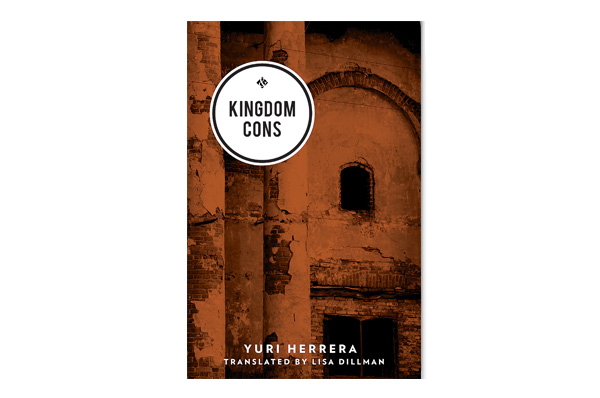This article is adapted from AQ‘s print issue on youth in Latin America
The corridos of northern Mexico have been described as musical newspapers, folk histories timed to the lively wheeze of an accordion that celebrate the poor, the forgotten and the outlaws. Within the last 20 years, as the war on drugs accelerated, the subgenre of the narcocorrido has blossomed along the U.S.-Mexico border, exalting drug traffickers as latter day Robin Hoods. It is through the story of one lost corridisto named Lobo that Yuri Herrera, in his fabulist novel Kingdom Cons, examines the relationship between art and power. What is truth, he asks — historical, literary, personal — in a world of lies?
The tale begins with Lobo singing his way into the Palace, home to a local drug kingpin and his retinue. There, Lobo is transformed into the Artist, recruited as yet another archetype among archetypes — the Witch, the Girl, the Jeweler, the Journalist — that occupy the compound. Capitalist society writ small, the Palace is an enchanted prison: a kingdom of flimsy spectacles that barely conceal its brutalities. In this precarious and corrupt con game, where a savage entrepreneurialism flourishes in a vacuum of control left by the state, the Artist’s survival depends on how well his hagiographies please the honchos in power. In the Palace the Artist becomes a ghostly witness to the machinations of court life, which then provide the material for his songs.
Herrera is a jumbler of cultural forms, both literary and vernacular. Kingdom Cons is narrated with a bardic omniscience, a mythopoetic tone satisfyingly coarsened by slangy dialogue. The musicality of the prose turns the slim novel into its own kind of narcocorrido. Herrera balloons the gritty details, the stuff of conventional narco novels, into a larger allegory about the Artist’s search for integrity within the workings of power. What is the use of words in the authoritarian regime? “They are a constant light,” Herrera writes, “They are the lighthouse flare cast over stones at his command, they are a lantern that searches, then stops, and caresses the earth, and they show him the way to make the most of the service that is his to render.” Haunting the novel is this sense of complicity, the fear of selling out, of reducing language to the purely transactional.
And yet while the Artist holds a mirror to the vainglorious exploits of the Palace’s residents, he sees nothing of himself within. The mirror, rather than a tool for true reflection, is an object of vanity. Each member of the kingdom, with the exception of the prostitute with whom the Artist shares a bed, is solipsistic and blind. “I’m surprised all the courtiers don’t spend all day running into each other in the corridors,” the Doctor says as he administers an eye exam to the Artist. The Artist regaining his sight coincides with an ever-sharpening clarity and forms the crux of the novel. Afterward, the Artist absconds with his beloved, the Commoner, from the Palace to the unvarnished city, where “a light more pure was cast down on the slum, and he was privileged to be able to see it.” All at once, the false idols of the Palace lose their luster. The ultimate con, we find, is to deceive oneself.
The plot may be predictable, but Kingdom Cons is still an exquisite parable. The hero encounters vanity, violence, lust and greed, only to emerge from his journey stripped of illusions and armed with a more profound knowledge of art. If the power of language is its restitching of truths, then it is an instrument that can be wielded for both good and evil. By the novel’s romantic end, the Artist becomes Lobo again and rediscovers language liberated from authority, an art with which he “created his own sovereign texture and volume. A separate reality.” It is in these passages, in which the Artist reflects upon the meaning of words, that Herrera reaches his most poetic and sublime. “I never tell the truth,” the Commoner tells the Artist, when pressed to relinquish her story. In a dictatorship, after all, one’s truth — that inner necessity, the private and untouched reality, a place of uncolonized dreams — is a story to be protected.
Kingdom Cons
By Yuri Herrera
Translated by Lisa Dillman
And Other Stories, Paperback, 112 pages
—
Ventura is a writer based in Iowa City, Iowa





